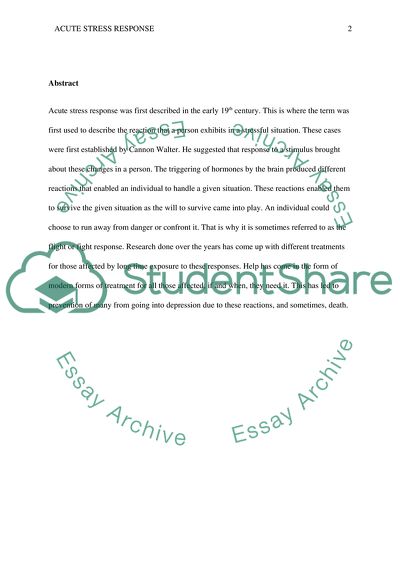Cite this document
(The Concept of Acute Stress Response Coursework Example | Topics and Well Written Essays - 2000 words, n.d.)
The Concept of Acute Stress Response Coursework Example | Topics and Well Written Essays - 2000 words. https://studentshare.org/psychology/1767555-acute-stress-response
The Concept of Acute Stress Response Coursework Example | Topics and Well Written Essays - 2000 words. https://studentshare.org/psychology/1767555-acute-stress-response
(The Concept of Acute Stress Response Coursework Example | Topics and Well Written Essays - 2000 Words)
The Concept of Acute Stress Response Coursework Example | Topics and Well Written Essays - 2000 Words. https://studentshare.org/psychology/1767555-acute-stress-response.
The Concept of Acute Stress Response Coursework Example | Topics and Well Written Essays - 2000 Words. https://studentshare.org/psychology/1767555-acute-stress-response.
“The Concept of Acute Stress Response Coursework Example | Topics and Well Written Essays - 2000 Words”. https://studentshare.org/psychology/1767555-acute-stress-response.


